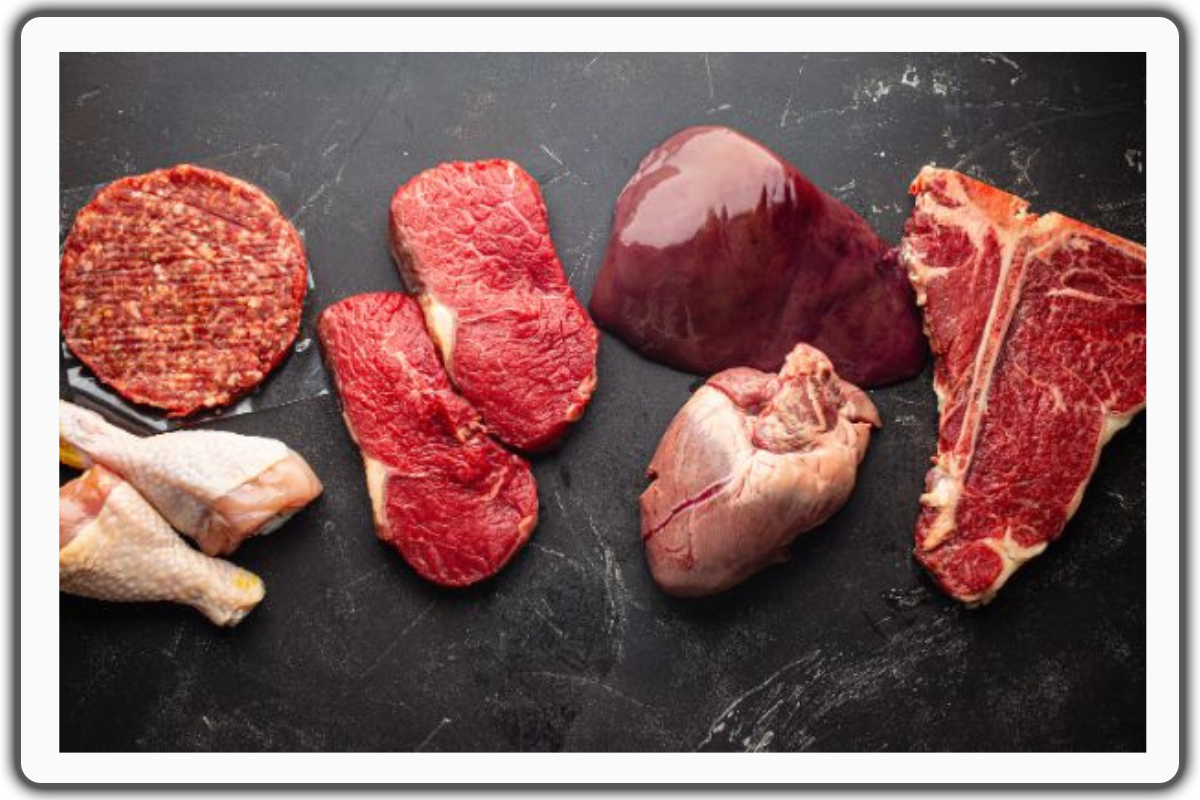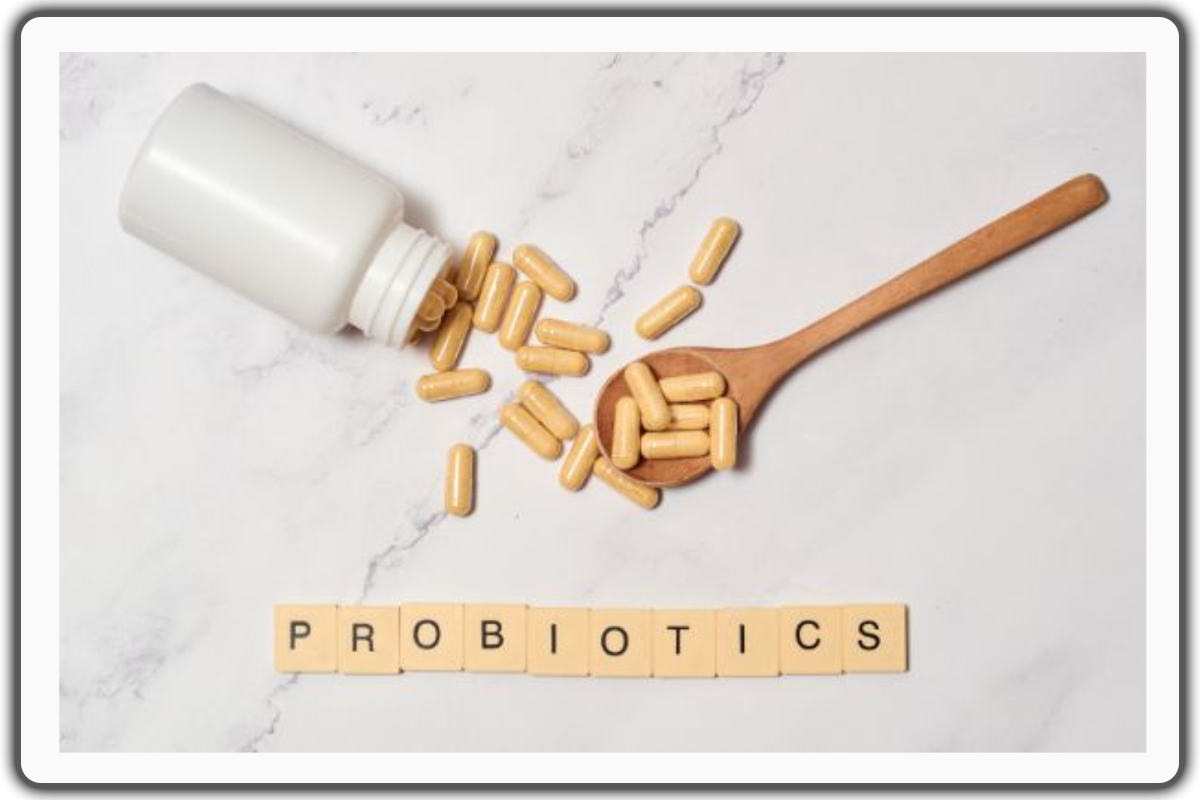Supplements to Take on Carnivore Diet: What You Need to Stay Healthy
The carnivore diet is a trending approach to health, embraced by those seeking a simplified, back-to-basics way of eating. It focuses solely on animal-based foods, such as meats, fish, eggs, and animal fats.
This diet is praised for potential benefits like weight loss, improved mental clarity, and relief from chronic conditions like autoimmune disorders and inflammation. Its appeal lies in simplicity and nutrient-dense foods.
However, it’s highly restrictive, eliminating all plant-based foods, including fruits, vegetables, grains, and legumes. While rich in protein, iron, and B vitamins, it lacks sufficient Vitamin C, magnesium, and fiber, raising concerns about long-term sustainability and nutritional gaps.
This is where supplements are essential. Eliminating entire food groups makes it harder to meet individual needs, especially for athletes, those with health conditions, or people in low-sunlight regions.
This guide shares the key supplements carnivores need to stay healthy, keep their energy up, and succeed on this diet. It includes helpful tips for both beginners and those looking to improve their approach.
Here’s Why the Carnivore Diet May Require Supplements
The carnivore diet is built around the principle of consuming only animal-based foods, which are undeniably rich in certain nutrients.
However, this dietary approach is highly restrictive and may lead to gaps in essential vitamins and minerals that are typically derived from plant-based foods.
Here’s a closer look at why the carnivore diet often necessitates supplementation.
1. Limited Food Variety
One of the fundamental challenges of the carnivore diet is its reliance on a highly restricted range of foods.
While meat, fish, eggs, and animal fats are nutrient-dense, they do not offer the wide array of vitamins, minerals, and phytochemicals that come from consuming a variety of food groups.
For example, vegetables and fruits provide essential nutrients like Vitamin C, potassium, and antioxidants, which are largely absent in an animal-only diet.
This limited food variety can lead to relying too much on certain foods, which may cause imbalances.
Without plant-based foods, many fiber-rich options that support digestion are missing.
Over time, this lack of diversity can raise the risk of nutrient deficiencies, making supplements a helpful way to stay healthy.
2. Nutritional Gaps
Although the carnivore diet provides an abundance of certain nutrients like protein, iron, and B vitamins, it leaves notable gaps in the vitamins and minerals that are crucial for optimal health.
However, it is virtually nonexistent in most animal products except for small amounts in organ meats like liver.
While the necessity of fiber is debated in carnivore circles, it is essential for promoting gut health and regular bowel movements for many individuals.
Carefully chosen supplements can fill these nutritional voids, ensuring that followers of the carnivore diet maintain a balanced, nutrient-rich lifestyle.
3. Individual Needs
Nutritional requirements can vary widely depending on factors such as age, activity level, and pre-existing health conditions.
Older adults, for instance, may need more calcium and Vitamin D to support bone density, as age-related nutrient absorption declines (Hill & Aspray, 2017).
Active people or athletes on a carnivore diet often need electrolytes like sodium, potassium, and magnesium to stay hydrated, avoid muscle cramps, and recover after workouts.
People with nutrient deficiencies or chronic conditions may find this restrictive diet increases their nutrient needs.
For example, someone with a history of low iron levels may thrive on the diet’s iron-rich foods, while a person with insufficient Vitamin D levels may need to rely on supplementation.
Recognizing and addressing these individual variations ensures that the carnivore diet is sustainable and tailored to the specific health goals of each person.
Supplements play a key role in meeting these unique needs, providing a safety net to support long-term well-being.
Top Supplements for the Carnivore Diet
1. Vitamin C
Vitamin C is an essential nutrient best known for its role in immune function, collagen production, and antioxidant protection.
On a carnivore diet, Vitamin C is difficult to obtain in sufficient amounts because it is found primarily in fruits and vegetables.
While small amounts of Vitamin C are present in organ meats like liver, they are often not enough to meet daily requirements for many individuals.
Without adequate Vitamin C, people may experience symptoms like fatigue, joint pain, and even scurvy in extreme cases, especially over the long term.
Supplementing with a high-quality Vitamin C source, such as ascorbic acid or liposomal Vitamin C, ensures that these critical functions are supported.
It can also help reduce oxidative stress and support overall health, particularly during times of illness or high stress.
As noted, "Most of us should be on time-release Vitamin C... Vitamin C doesn’t last very long after we swallow it—it’s a water-soluble vitamin, we don’t store it, so you’ve got to get a time-release Vitamin C." - Dr. Steven Gundry, MD.
This ensures a steady release throughout the day, helping maintain optimal Vitamin C levels for prolonged benefits.
2. Magnesium
Magnesium is a mineral that is vital to hundreds of bodily processes, including muscle function, nerve signaling, energy production, and sleep regulation.
While some magnesium is found in animal products, the primary dietary sources of this mineral are plant-based foods such as leafy greens, nuts, and seeds—all of which are excluded in the carnivore diet.
Magnesium deficiency can lead to symptoms like muscle cramps, fatigue, irritability, and poor sleep quality.
To avoid these issues, those on a carnivore diet can supplement with highly bioavailable forms of magnesium, such as magnesium glycinate or magnesium citrate.
These forms are gentle on the stomach and effectively raise magnesium levels.
Supplementing magnesium also helps balance electrolytes, especially for those who are physically active or transitioning to the diet, when losses through sweat or urine may increase.
3. Electrolytes
Electrolytes, including sodium, potassium, and magnesium, are essential for maintaining hydration, nerve function, and muscle contractions.
On the carnivore diet, many people experience an initial loss of electrolytes as their body adapts to a lower carbohydrate intake.
This can result in symptoms like fatigue, headaches, muscle cramps, and what’s commonly referred to as the "keto flu."
Sodium is particularly important, as animal foods tend to be naturally low in salt unless salted during preparation.
Potassium, another critical electrolyte, supports heart health and muscle function but is primarily found in fruits and vegetables.
Supplementing with an electrolyte powder or tablet containing balanced amounts of sodium, potassium, and magnesium can help prevent deficiencies, support physical performance, and ensure proper hydration throughout the day.
4. Omega-3 Fatty Acids
Omega-3 fatty acids, including EPA and DHA, are crucial for brain health, heart health, and reducing inflammation in the body.
While fatty fish like salmon, mackerel, and sardines are rich in omega-3s and are technically carnivore-friendly, many people do not consume fish frequently enough to meet their needs.
Additionally, the omega-6 to omega-3 ratio in the modern diet is often skewed, leading to increased inflammation.
Supplementing with high-quality fish oil or krill oil ensures a sufficient intake of omega-3s and helps balance the ratio, especially if the diet includes significant amounts of omega-6-rich animal fats.
For optimal health benefits, look for omega-3 supplements that are third-party tested for purity and contain a high concentration of EPA and DHA.
5. Vitamin D
Vitamin D, often referred to as the "sunshine vitamin," is essential for bone health, immune function, and mood regulation.
While certain animal-based foods like fatty fish and egg yolks contain Vitamin D, it can be challenging to achieve optimal levels through diet alone, particularly for those who live in regions with limited sunlight exposure.
Deficiency in Vitamin D is common, even among the general population, and can lead to weakened bones, fatigue, and a compromised immune system.
Supplementing with Vitamin D3, the most bioavailable form, is particularly important for those following a carnivore diet, especially during winter months or for individuals who spend little time outdoors.
Combining Vitamin D with magnesium and Vitamin K2 can enhance its absorption and effectiveness.
6. Probiotics
Probiotics are beneficial bacteria that support gut health, digestion, and immune function.
The carnivore diet cuts out common sources of probiotics like yogurt, kefir, and fermented vegetables. It also lacks fiber, which feeds good gut bacteria.
Over time, this can reduce gut microbiota diversity, affecting digestion and health. Taking a good probiotic supplement can support a healthy gut, especially if you have digestive issues while adjusting to the diet.
Look for multi-strain probiotics that include species such as Lactobacillus and Bifidobacterium, which have been shown to support gut health and reduce inflammation.
How to Choose the Right Supplements
Consultation with a Healthcare Provider
Always adhere to the dosage recommended by your healthcare provider or indicated on the product label.
Overdosing on certain nutrients, such as fat-soluble vitamins (A, D, E, and K), can lead to toxicity because they accumulate in the body rather than being excreted like water-soluble vitamins.
Choosing Quality Supplements
In some cases, starting with a lower dose and gradually increasing it under supervision may be more beneficial, particularly for individuals with sensitivities.
For example, introducing magnesium too quickly can cause digestive discomfort, so a gradual approach can help your body adjust.
Dosage Recommendations
Certain supplements work best when taken at specific times or with other nutrients.
For example, Vitamin D is better absorbed when taken with a meal containing fat, and magnesium can enhance the effects of Vitamin D.
Conversely, some supplements can interfere with each other’s absorption, such as calcium and iron, so spacing them out may be necessary.
Dangers of an Improper Carnivore Diet
Following the carnivore diet incorrectly can lead to serious health issues:
Tips on How to Maximize Nutrient Absorption
Conclusion
The carnivore diet offers a simple, nutrient-dense approach to eating that has captivated many for its potential benefits, including weight loss, improved mental clarity, and reduced inflammation.
However, its restrictive nature means that some essential nutrients, such as Vitamin C, magnesium, omega-3 fatty acids, and fiber, may be insufficient or entirely absent.
Incorporating the right supplements is crucial for filling these nutritional gaps, ensuring sustained energy, essential amino acids, skin health, and simply overall well-being.
By consulting a healthcare provider, choosing high-quality supplements from reputable brands, and following proper dosage and timing guidelines, you can safely enhance the nutritional profile of the carnivore diet.
Supplements like electrolytes, probiotics, and Vitamin D not only address specific deficiencies but also support hydration, gut health, and immune function.
Whether you’re new to the carnivore lifestyle or refining your approach, thoughtful supplementation can make all the difference in maintaining long-term success while preserving your health.
FAQs
1. Why do I need supplements on the carnivore diet?
The carnivore diet eliminates plant-based foods, leading to potential gaps in nutrients like Vitamin C, magnesium, and fiber. Supplements ensure you get essential nutrients to maintain optimal health.
2. What are the most important supplements for the carnivore diet?
Key supplements include Vitamin C, magnesium, electrolytes, omega-3 fatty acids, and Vitamin D. Each supports critical functions like immunity, bone health, hydration, and inflammation reduction.
3. Can I get all my nutrients from animal-based foods?
While animal products provide protein, iron, and B vitamins, they lack certain nutrients like Vitamin C and magnesium. Supplements fill these gaps effectively.
4. How can I choose the right supplements?
Consult a healthcare provider to identify your needs. Look for high-quality, third-party-tested supplements to ensure potency and purity. Follow recommended dosages for safe supplementation.
References
Carbone, C., Mace, G. M., Roberts, S. C., Macdonald, D. W. (1999). Energetic constraints on the diet of terrestrial carnivores. Nature.
https://www.nature.com/articles/46266
Lennerz, B. S., Mey, J. T., Henn, O. H., Ludwig, D. S. (2021). Behavioral Characteristics and Self-Reported Health Status among 2029 Adults Consuming a “Carnivore Diet”. Elsevier, Current Development in Nutritions.
https://pmc.ncbi.nlm.nih.gov/articles/PMC8684475/
Hill, T. R., Aspray, T. J. (2017). The role of vitamin D in maintaining bone health in older people. Therapeutic Advances in Musculoskeletal Disease.
https://journals.sagepub.com/doi/p










